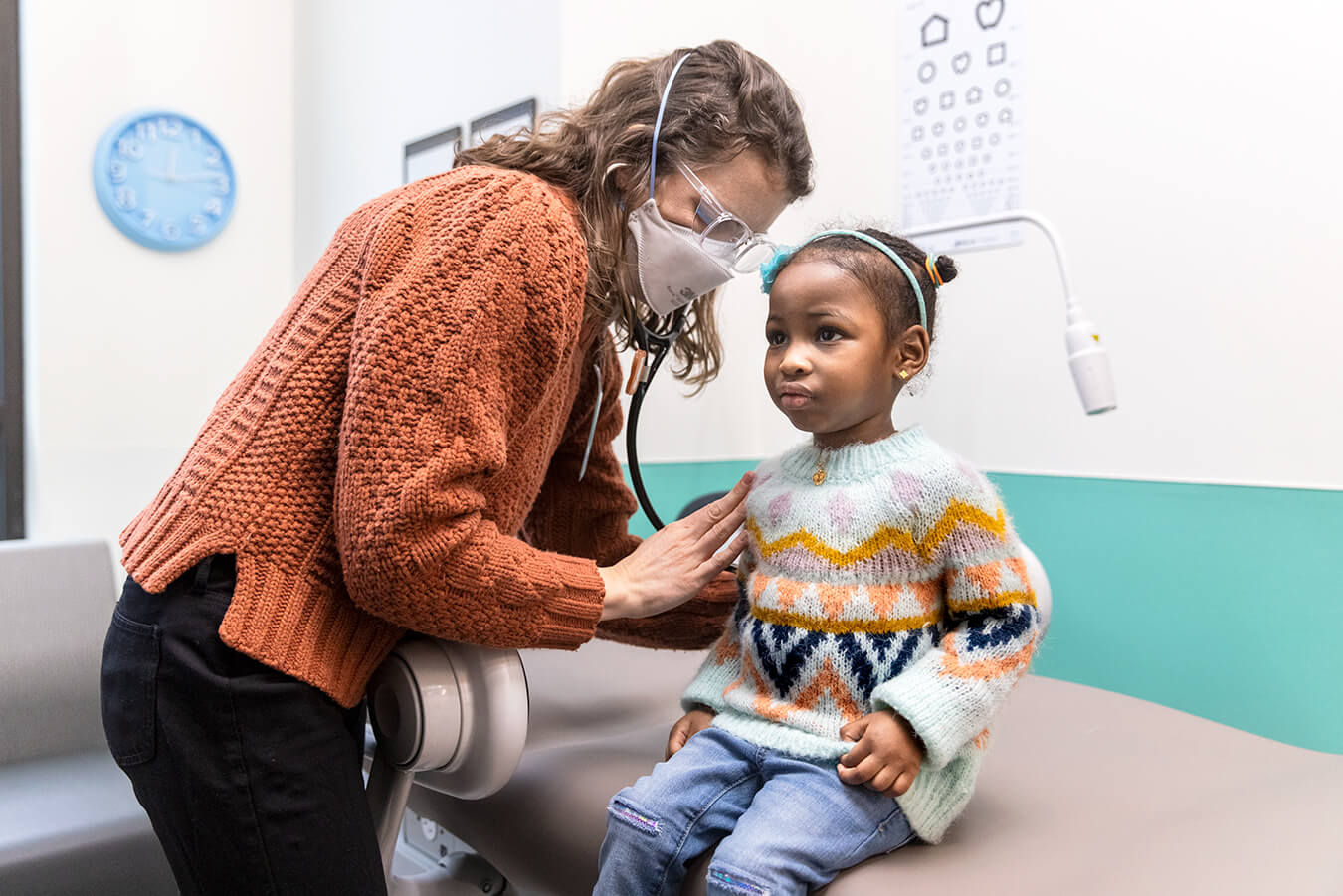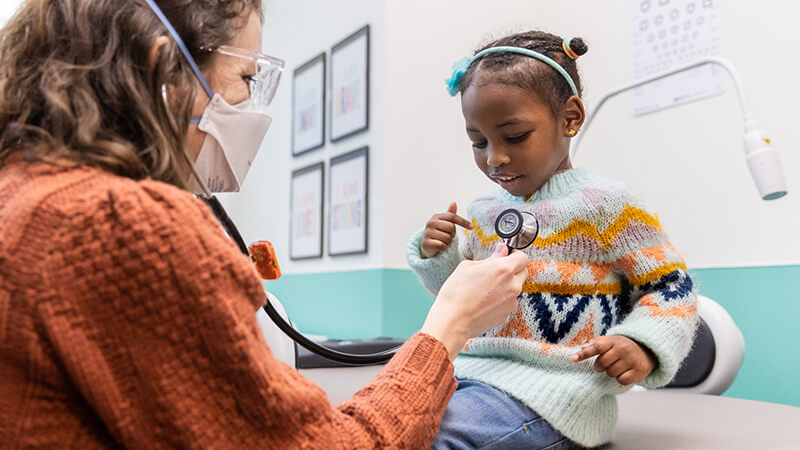Sickle Cell Disease
What is sickle cell disease?
Sickle cell disease is a group of blood conditions that affect hemoglobin (HEE-moh-GLOH-bin), the part of red blood cells that delivers oxygen to cells in the body. The genes that cause the disease are passed from parent to child.
Healthy red blood cells are round, soft disks. In sickle cell disease, red blood cells start out normal but become curved, shaped like a crescent moon. They are hard and sticky and can clog blood vessels. This causes pain and blocks blood flow.
Sickle cells do not last as long as healthy red blood cells. The body cannot make new red blood cells fast enough to replace them. This can cause low levels of red blood cells (anemia). One of the most serious forms of the disease is called sickle cell anemia.
In the United States, most people with sickle cell disease are of African or Hispanic heritage. But the disease can affect anyone, especially people of southern European, Middle Eastern or Asian Indian heritage.
What causes sickle cell disease?
Sickle cell disease is caused by a change (mutation) in genes for hemoglobin.
- Having sickle cell disease means a person received the sickle cell gene or other abnormal hemoglobin genes from both parents.
- Having sickle cell trait means a person received the sickle cell gene from only 1 parent. People with sickle cell trait are not sick. But they do carry the sickle cell gene and can pass it on to their children.
What are the symptoms of sickle cell disease?
Some children with sickle cell disease have only mild symptoms. For others, symptoms can be severe.
Symptoms of sickle cell disease include:
- Pain, which can be extreme.
- Feeling tired.
- Breathing problems.
- Having severe infections.
- Losing balance or control of parts of the body (stroke).
- Yellow color in the whites of the eyes. Children with lighter skin tones may have yellowish skin. This is called jaundice. It happens if the liver cannot filter blood fast enough.
How is sickle cell disease diagnosed?
Newborn screening for sickle cell disease
All newborns in the United States get a blood test right after birth that checks for sickle cell disease. In Washington, newborns diagnosed with sickle cell are referred to specialty care right away. Bender works closely with the state’s Newborn Screening Program to assure all babies get the care they need.
If your child was not screened as a newborn, they can get a blood test at any time. This is very important for children who have a higher risk of the disease because they are of African or Hispanic descent or have family members with sickle cell disease or trait.
Knowing your baby has sickle cell helps get support and care before problems begin.
Prenatal screening for sickle cell disease
Pregnant women can have a test that checks for sickle cell disease before their baby is born. The test looks for the genes that cause sickle cell disease. The test checks a sample of amniotic fluid or cells from the placenta.
Blood tests for sickle cell disease
If your child has not been tested for sickle cell disease but has symptoms like pain or extreme tiredness, the doctor may check your child’s blood for:
- The type and amount of hemoglobin in the red blood cells
- The number of red blood cells in the blood and their size and shape
- The abnormal genes that can cause sickle cell disease
Genetic counseling and testing
If you have a family member with sickle cell trait or sickle cell disease, there is a chance that other family members may have the trait too. People with sickle cell trait have 1 abnormal hemoglobin gene. People with sickle cell disease have 2 copies of the gene that causes the disease.
If you are concerned about passing the sickle cell gene on in your family, you can get a blood test to see if you carry it.
Whether or not you want this test, you can talk with a doctor to learn more about your risk of having the trait or passing it to your children. This is called genetic counseling. It can help you make informed decisions about family planning and your child’s treatment.
We offer genetic counseling and testing for sickle cell trait at Seattle Children’s hospital campus.
How is sickle cell disease treated?

We watch your child’s health closely and recommend the best treatments for them. Keeping careful track of their health ensures your child gets the care they need before more serious problems start. That helps them feel better and gives them the best chance of successful treatment.
Where and how can Seattle Children's help?
In addition to in-person visits, we use video phone calls (telemedicine) to check on patients and families and provide education and advice.
-
Seattle: Odessa Brown Children’s Clinic
We provide care to children with sickle cell disease at Odessa Brown Children's Clinic (OBCC). You can get care at the clinic even if you get most of your health care elsewhere.
-
Seattle: Hospital Campus
If your child needs hospital treatment, they will get care at Seattle Children’s hospital campus. If a bone marrow transplant is an option for your child, you may be seen at Seattle Children’s Cancer and Blood Disorders Center
-
Across Washington state
For children who live in other parts of the state and get most of their care from doctors and hospitals close to home:
- You may visit us at OBCC.
- Your families and doctors can consult with us.
- We can help coordinate your care.
Most summers we hold free camps for children with sickle cell disease. Camps take place on Vashon Island in Puget Sound. Camp Korey also provides camp programming for children with sickle cell disease.
-
Throughout the Northwest
We work with children, families and doctors from other places in the Northwest to learn about children's needs and care.
We get information from children’s families and doctors about:
- Their health
- Their care
- The effects of sickle cell disease on their life at home and school
Based on this information, we check how their bodies are working. We also check to see if:
- They are getting the exams and tests they need
- They are getting the treatments they need for fevers and pain
- They are getting care for any problems with their breathing, heart or nervous system
- Their families know signs to watch for and what to do if their child shows signs that they need other treatment
- Their schools and doctors at home have the information they need about the disease
- Their families are connected to a hospital near home where doctors know about sickle cell disease
Contact Us
For an appointment, call 206-987-2106. For more information about our services, call 206-987-7263 to reach the OBCC sickle cell advanced practice provider.
Providers, call 206-987-7263 to refer a patient.
Paying for Care
Learn about paying for care at Seattle Children’s, including insurance coverage, billing and financial assistance.


